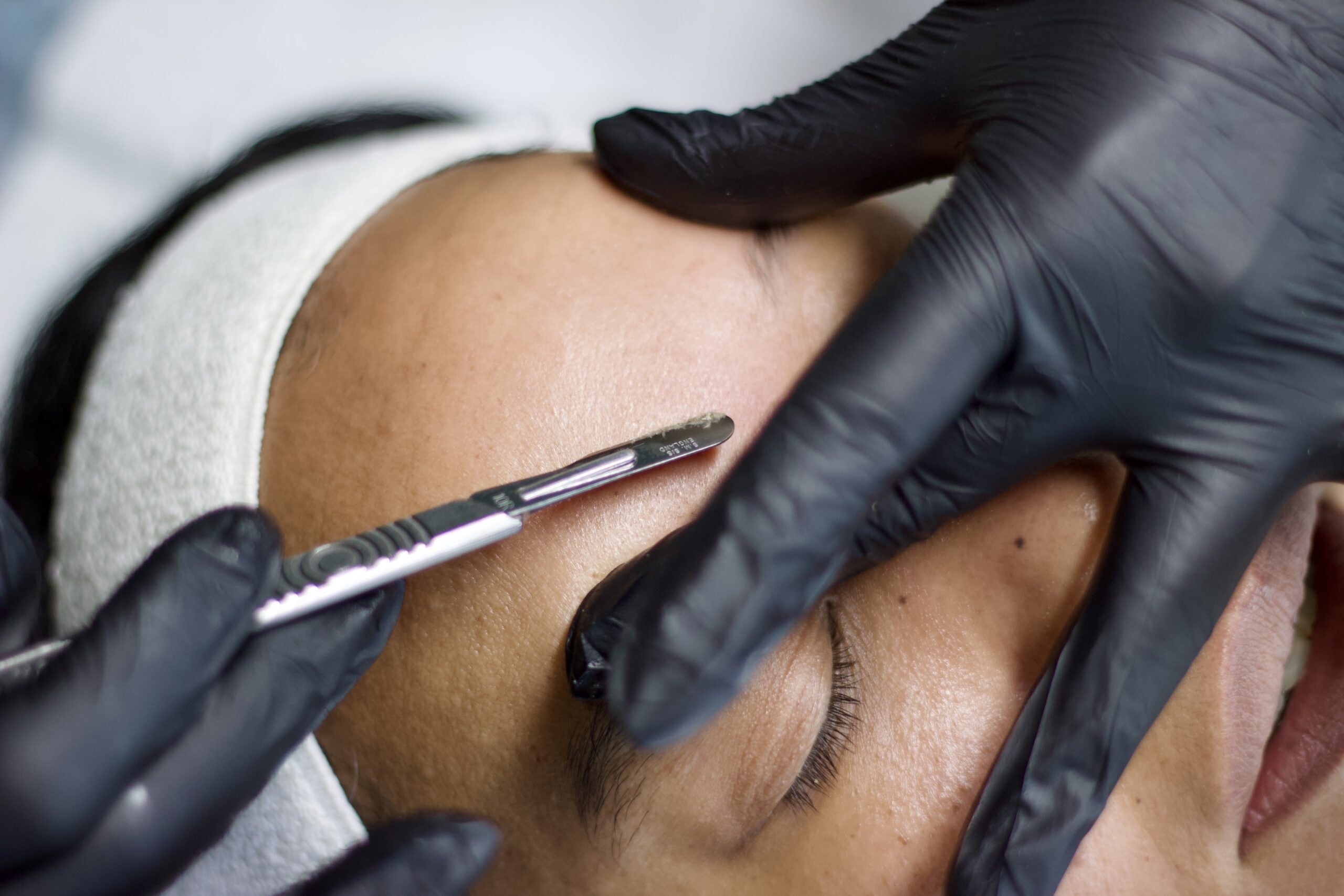IS IT A ONCE-off treatment?
Dermaplaning can be a one-time treatment, but it's often recommended as a regular part of a skincare routine for optimal results and maintenance. Depending on your individual skin concerns and goals, your dermal aesthetician may recommend a series of dermaplaning treatments spaced a few weeks apart to achieve the desired outcome. Regular dermaplaning treatments can help to promote smoother, brighter, and more even-looking skin, while also improving the effectiveness of your skincare products. However, the frequency of the treatment is ultimately up to you and your dermal aesthetician.
Will dermaplaning make my facial hair thicker/darker?
No, dermaplaning will not make your facial hair thicker or darker. This is a common misconception about the treatment. Dermaplaning involves using a sterile surgical blade to gently remove dead skin cells and vellus hair (peach fuzz) from the surface of the skin. This type of hair is soft and fine, and removing it will not change the texture or colour of the hair follicles. In fact, many people find that their skin looks and feels smoother after dermaplaning, and their makeup goes on more evenly.
How long before special events should I get dermaplaning?
If you're considering dermaplaning before a special event, it's recommended to have the treatment done 5 days prior to the event. This will allow any redness or sensitivity to subside, and for your skin to fully recover and look its best. It's also important to avoid direct sun exposure and wear a broad-spectrum sunscreen with at least SPF 30 after the treatment to protect your newly exposed skin. As always, it's best to consult with your dermal aesthetician to determine the best timing for your individual needs and goals.
Can I go to work after dermaplaning?
Yes, you can go to work after dermaplaning. It's a non-invasive treatment that typically doesn't require any downtime, so you can resume your normal activities right away. However, your skin may be slightly red or sensitive immediately after the treatment, so you may want to avoid any harsh products or treatments for the rest of the day.
When should I Book dermaplaning instead of a chemical peel?
Dermaplaning and chemical peels are both popular skin rejuvenation treatments, but they have different benefits and are suited for different skin types and concerns.
Dermaplaning is a physical exfoliation treatment. This treatment can help to improve the appearance of fine lines, acne scars, and uneven skin texture. It's also a good option for those with sensitive skin or who are pregnant or breastfeeding, as it's a non-invasive and chemical-free treatment.
Chemical peels, on the other hand, use acids or enzymes to exfoliate and rejuvenate the skin. They can be tailored to address specific concerns such as acne, hyperpigmentation, and fine lines and wrinkles. Chemical peels are typically best for those with non-sensitive skin and who don't have any contraindications to the treatment.
